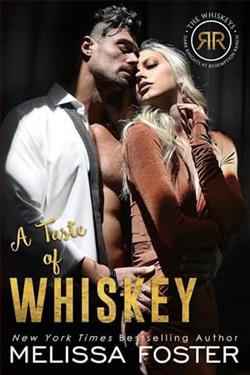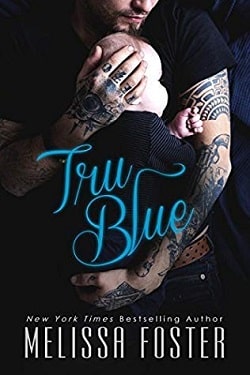Page 58 of In the Night Garden
“My child is called Tomomo,” Mother answered, her voice quavering.
Majo clicked her tongue twice and produced a yellow pouch from her skirt, tossing it lightly in her hand. “Give her to me and I will give you this—keep it always next to your skin and it will produce one gold piece every time the cock crows.”
The women all caught their breath like fishermen snagging fat salmon and murmured among themselves enviously—after all, who cared about a useless girl-child in the face of all that gold?
My mother’s eyes flickered furtively from me to the old Witch. Finally, she agreed and snatched the yellow charm, scurrying back to the inner rooms with the rest of the women, full of this new wonder. She kissed me on the cheek and almost as an afterthought warned me to be careful. In a moment, Majo and I stood in the courtyard, alone, save for the marvelous cart.
She said nothing to me, but pulled a great copper pot from her cart and filled it with water from a pitcher so large I could scarcely believe she had concealed it in the folds of her skirt. When the ripples died down to nothing and the moon shone in the pot like a potato floating in soup, she indicated that I should look into it.
Of course, I saw there my true face, my snout thin and sharp, my moist black nose, my ears flicking curiously in the night wind. I suppose I should have been frightened; my fur was so red and my teeth were so bright. But truly, I was relieved—this was the thing my mother saw pacing behind my eyes. I was not wicked, simply a monster.
“There you have it, Tomomo, my girl.” Majo patted my back in a strangely congratulatory way.
“How did you know?” I asked.
“We know our own; we can smell it, the scent of fur under skin like sugar dissolved in tea.”
She leaned over my shoulder and her face floated beside mine in the water, a mangy wrinkled face with her one eye slashed out, her lower lip scarred and her jowls heavy as saddlebags. We grinned together, and our reflections bared their teeth, hers yellow and blunt, mine white and sharp.
“You belong to me now, little fox-girl. If I had known sooner, I might have spirited you away at birth and found a den for you in the mountains. Now, it is more complicated. You are much too old to join your cousins there. But it does not really matter so much—if you learn well, you may be able to find a place in the world, as I have. But be always wary of water—it reveals us.”
She poured out the pot onto the pebbles and packed it away into her cart, pulling wide leather straps over her shoulders and hoisting the miniature house onto her back. The wooden legs snapped up under its floor and Majo sniffed the wind.
“A fox must be always alert and wakeful,” she said sternly. “Now that you know that you are one, you have no excuse for this laziness. I have enough to carry without your thrice-damned sedan chair. Get those ridiculous things off your feet.”
Happily I ripped them off, chewing at the thick knots with my teeth. I nimbly walked alongside Majo with a heart so full and bright it threatened to burn through my robes.
“Where are we going?” I asked.
“I am taking you to a place where you can learn things. You have been sleeping on bedrolls soft as clouds lined in silk and feasting on fatted deer. But outside Palace grounds, deer are clever and hard to catch, and bedrolls are too heavy to carry. There are other ways of living, and on the whole, they make for better women. A pity your mother never slept on a cave floor with leaves for blankets—I hope she enjoys her prize. By morning, all the cocks in the capital will have dropped dead, dead as gold and daughters unwanted.”
I gawked, unable to imagine so many dead roosters, or how the bent old hag could have managed to leave a wake of strangled chickens behind her. But before I could ask, she was trundling away.
I kept pace, though not easily. She was surprisingly fleet for her age, and I began to understand how she could travel from city to city with such ease. Before long, we were deep into the forest, where bamboo was as thick around as a woman’s waist. Before much longer, I could smell the sea, faintly, and damp began to weight my hair. When the night had become cold and clear as pond ice, and we had reached a long beach which was softer underfoot than sweet cakes, Majo spoke again. Her voice was no longer rough and scabbed, but high and sharp, unsurprisingly like the bark of a fox calling to her kits.
“Well, here we are.”
“Where is it we’re meant to be?” I saw nothing but the long sea, and the breakers foaming white, and a slender pier stretching into the water like a skeletal finger.
Majo rolled her eyes. “A fox must be clever and self-sufficient. Put your educated mind to use and figure it out yourself. I brought you here; my part is finished. I am not a book; you cannot look up the answer in my index.” Majo shifted under the weight of her house. I stood there on the sand, nonplussed, trying not to look like a simpleton. She rolled her eyes. “You see the pier? It’s the only damned thing around, so why don’t you go see if anyone is living under it, hmm? Or shall I just do everything for you like your addle-brained mother?”
Majo released the cart straps from her shoulders and let the wooden legs unfold. She rummaged inside the hutch for a moment and drew out a thick cushion. Settling on it, she pulled a rice ball from her skirts and munched happily on it, gesturing towards the pier and urging me to get on with it. My cheeks stung as if switch-whipped. I would
certainly not be shown as a spoiled brat in Majo’s presence. I ran off after the rickety pier, tiny shards of seashell spraying up behind my pounding heels.
It stunk under the rotting slats. Algae and mussels and barnacles stuck to everything in wet clutches; old crab nets tangled in rusted-out clam buckets. I held my hand over my face and nearly gagged—few of those nets and buckets were empty of their last unfortunate victims. I saw nothing here which could be an errand worthy of Majo’s attention, and much that would not be worth the attention of even a starving seagull. But she was not wrong, I was sure; she could not be—and indeed, behind a well-chewed pillar, a dark shape scuttled by. I trudged towards it, my bare feet squelching in the tidepools and soggy sand, and soon I was knee-deep in the brine sea, splashing forward in the moonlight after a quick black shape.
“Wait!” I cried, and to my amazement the shape did stop, turning its sleek head back over its shoulder.
It was a large and well-fed otter. It rolled over in the waist-deep water and floated casually on its back, showing a wet golden belly against the rest of its slick, dark brown fur. Its face seemed friendly enough, if not exactly welcoming. Its whiskers were almost as thick as a mustache. In its paws was a large abalone with several bits of shell chipped off—the otter struggled with it, glancing up at me from behind its stubborn prize.
“What?” it said, and its voice rasped like dry kelp dragging over sand.
I didn’t at all know what to say. I was sopping wet and cold, and slime wriggled between my toes. I almost missed the swaddling bandages in all that muck. The pier water rippled around my thin robe as I stood like a child attempting to recite a poem she has not even tried to memorize.
“Majo sent me.” I shrugged, trying to look as though I conversed with otters every day. “I guess. I mean, I guess she sent me. She said to come to the pier, though it’s very dirty and I think a great many things have died down here.”
“No doubt,” said the otter, finally popping the shell open and ripping a thick piece of abalone flesh from the shimmering shell. “And each more delicious than the last.” It chewed hard for a good while on the tough meat before speaking again. “Well, if Majo sent you, I suppose we’ll have to make ends meet with a scraggly, skinny little fox, won’t we? No worse than most. I am Rakko, King of the Otters. If you haven’t brought me any shrimp or clams or such as tribute, I’ll just notch it down as owed.”















